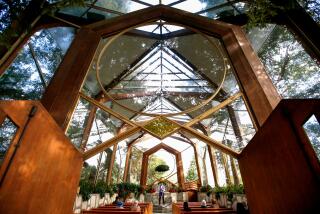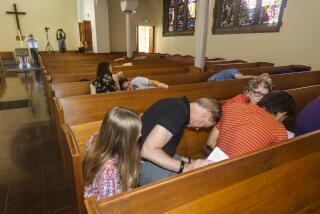This Easter, coronavirus prompts revival of a SoCal church legacy: the drive-in ministry
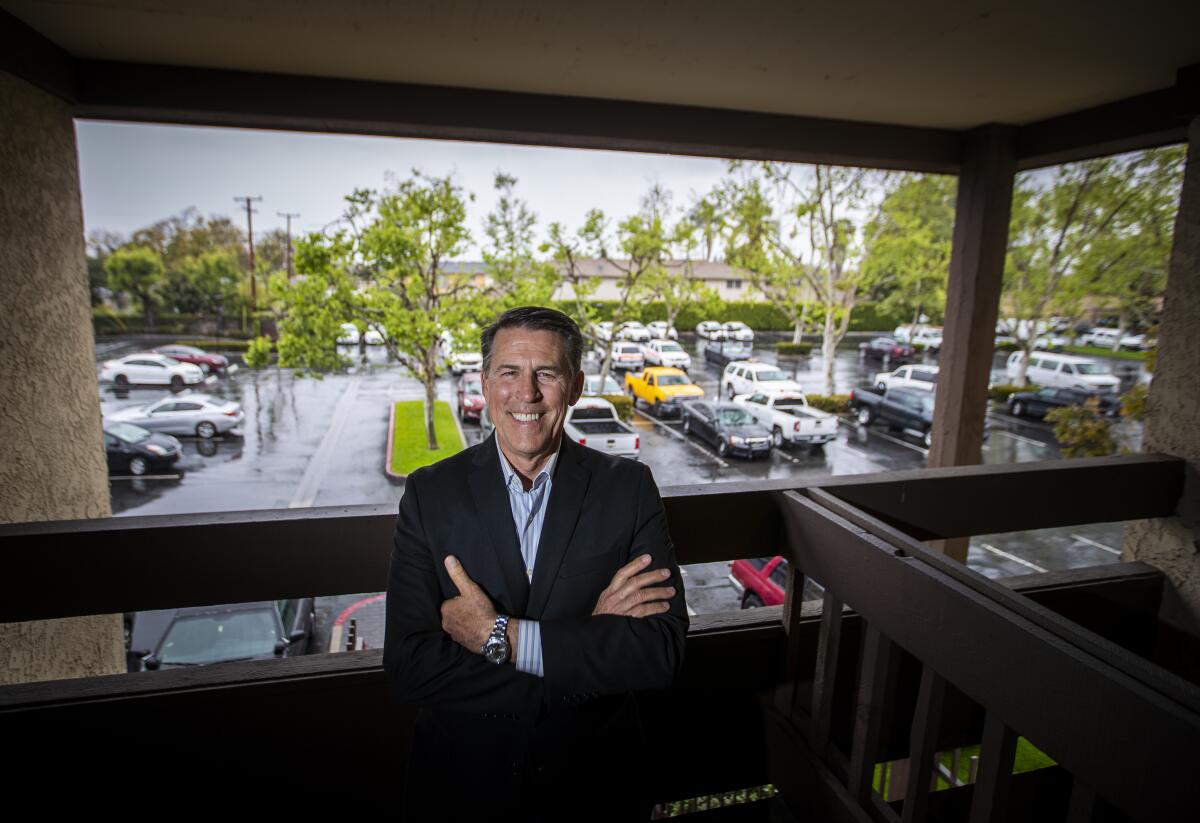
- Share via
This Easter, the Rev. Robert A. Schuller plans on letting his faith take the wheel.
The son of the pastor who built Garden Grove’s Crystal Cathedral, Schuller is temporarily reviving the drive-in ministry, a practice that helped his father rise from humble beginnings to become one of the late 20th century’s most recognized religious figures.
For the past four years, the younger Schuller has been preaching mostly on social media, providing daily sermons from his “church with no walls.”
But the coronavirus outbreak and subsequent loss of in-person fellowship for Christians around the country has led him back to his roots. The gathering comes as neighboring Los Angeles County has asked the faithful to follow its Safer at Home order and find ways to “be together emotionally, but apart physically.”

Barbara Ferrer, Los Angeles County’s director of public health, requested this week that any planned in-person or car gatherings for Holy Week or Passover be canceled. San Bernardino County had initially ordered that all religious services be held electronically, but later loosened restrictions, saying that organizations that had already planned and paid for drive-ins for the weekend should “proceed with those services if they choose to do so and make every effort to prevent contact between congregants.”
To Schuller, orders banning drive-ins are “almost persecutory.”
“We are gathering together in our cars and we are not touching,” Schuller, 65, said. “But we are able to get close to it by looking in someone else’s eyes and waving.”
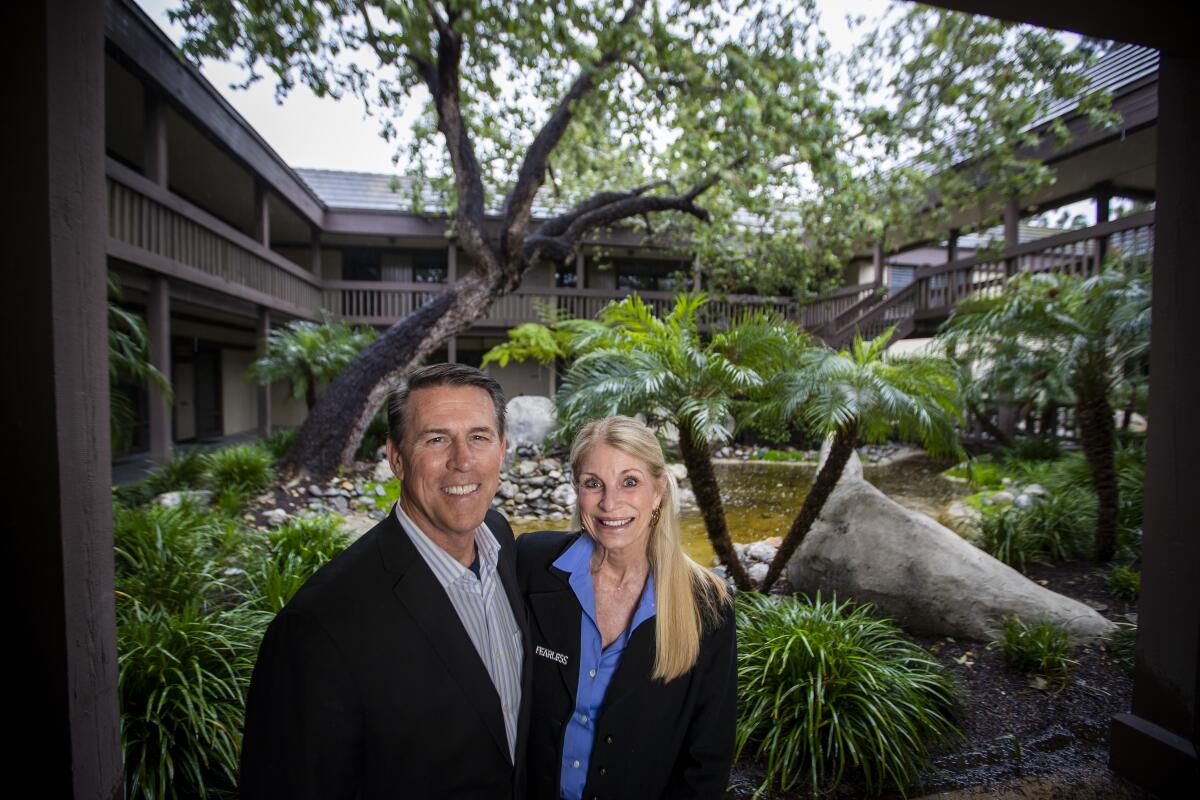
Schuller began holding in-car services at a Santa Ana office complex two Sundays ago, and plans to continue hosting them every Sunday “until the churches reopen.” The first service, held 65 years to the date after his father first gathered at a drive-in movie theater in Orange, saw about 30 cars pull into the lot. Another 75 parked for Palm Sunday the following week, as congregants rolled down their windows and pulled back their sunroofs to wave fronds in the air.
The pastor said he wouldn’t be surprised to see 300 families on Easter, one of the holiest days for Christians. Sunday’s service will start at 10 a.m., when parishioners can flip their radio dials to 105.7 FM and stream the service.
“We can be completely, perfectly safe and still have a good experience,” Schuller said.
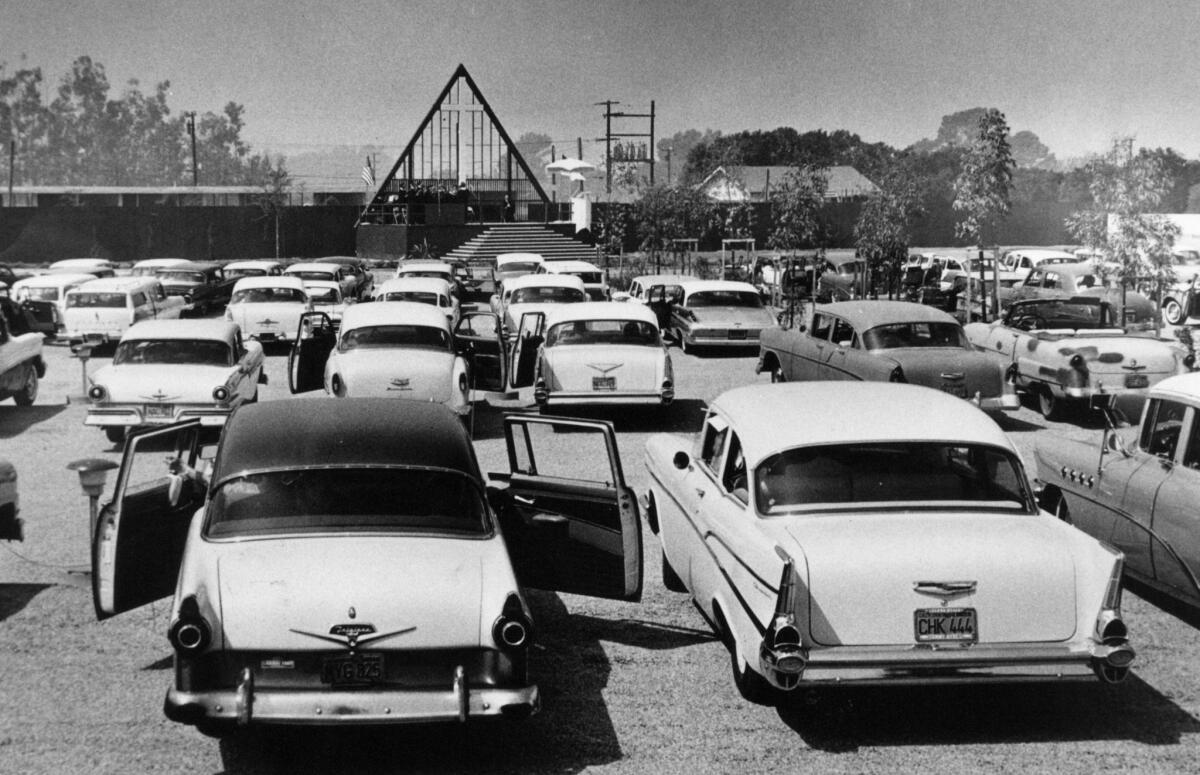
Such car-centric church services are rare in modern-day faith communities, said Gerardo Martí, chairman of sociology at Davidson College and an author of books about the Schuller family. But today, as a pandemic forces many into self-quarantine and pushes worship online, temporary drive-in services have popped up across the United States.
So much of church life — inspiration, elements of service, tithing — focuses on being together, he said, that the virus has provoked pastors into thinking about how they can continue to gather their congregations.
“It’s all coronavirus,” Martí said. “I never would have thought drive-in churches would have become relevant in 2020.”
Not unlike like his father, Schuller’s new drive-in church was born out of necessity — he saw the need for more personal interaction in faith communities at a time of social distancing and bending the curve and decided to do something about it.
“It’s notable that Robert A. Schuller would do this because Robert has been very close to his father’s legacy and he had also a vividness of memory of how his father did things,” Martí said. “It’s not a surprise that he would do that.”
The elder Schuller was a clergyman dispatched west to the burgeoning suburbs of Orange County with orders to build a new congregation from scratch in 1955. He met his parishioners where they were — in their parked Chevys, Fords and Pontiacs. He preached from atop the tar-papered roof of the snack bar at a rented drive-in movie theater. The fledgling church advertised with the slogan “Come as you are, pray in the family car!”
On Easter, his son will be sharing the same message.
“I understand that because I grew up with it,” Schuller said.
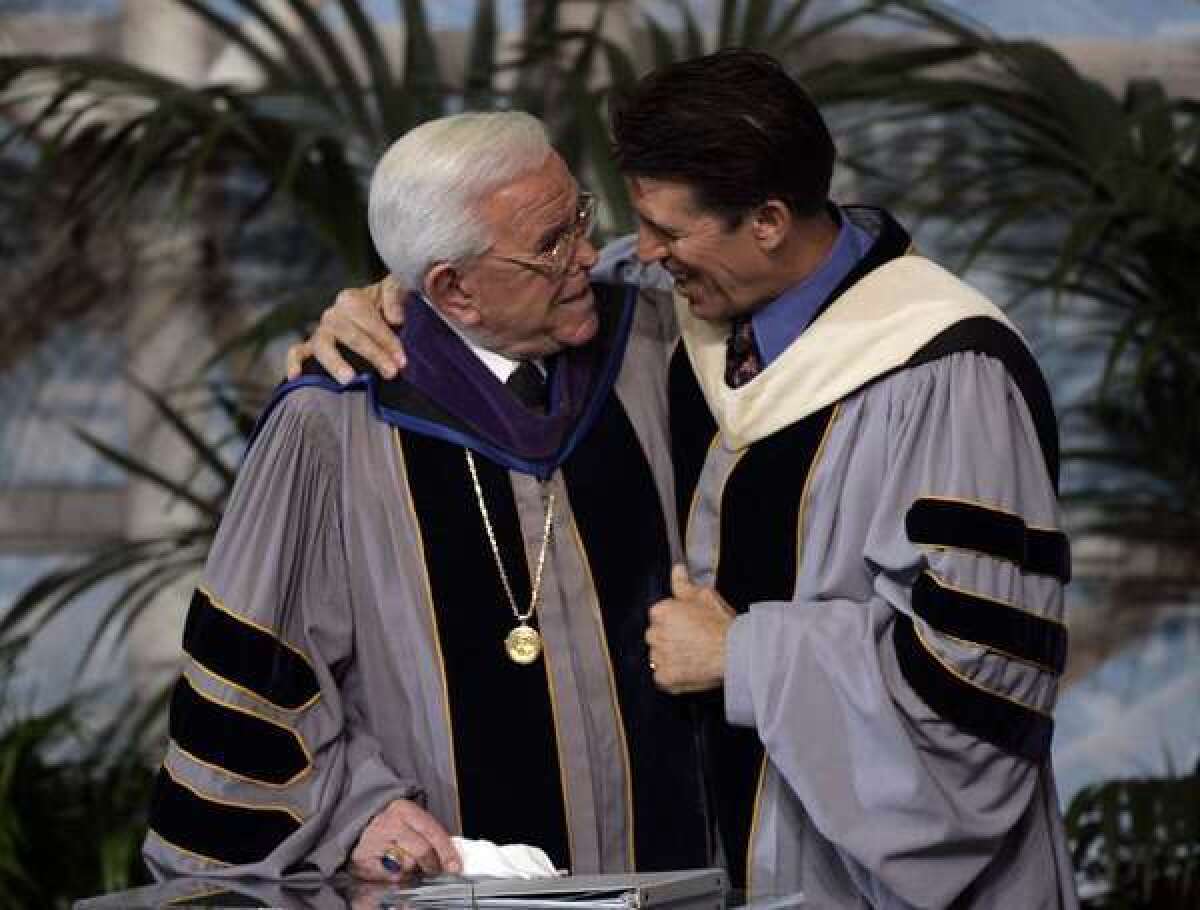
For parishioners, the unconventional church has helped to fill a hole felt in the absence of normal worship.
Gregg Walti, a friend of Schuller’s, has volunteered to help with services for the last two weeks. The 40-year-old wears a mask and gloves to direct cars as they pull into the parking lot, passes out prayer cards through a small handheld net that stretches into car windows and ensures that every parishioner can see Schuller from the perch of the building’s second-story balcony.
A lifelong churchgoer, Walti said he missed the four walls of church but was grateful for an innovative way to worship.
“I think it’s great solution for now, and gives people a sense of community that people are desperate for,” said Walti, whose wife and children attended the service ensconced in their white Infiniti SUV. “I’m not sure it’s a long-term solution. Once COVID-19 runs its course, I see people going back to traditional services.”
Suzan Paek enjoyed seeing people’s reactions as they prayed together on Palm Sunday, and is looking forward to a similar experience come Easter.
“It’s like watching sports at home versus at a venue,” the 54-year-old designer said. “It’s a different feeling.”
The service, she said, provided a sense of unity and security that couldn’t be replicated by online prayer groups held via Zoom or on YouTube.
“It’s a nice way to even see other people, even if you’re just waving at them,” she said. “It’s a camaraderie.”
The Newport Beach resident said she’d gone to drive-in movies as a child, but didn’t know those still existed — let alone in church form. But the parking lot gatherings came at the right time, she said, drawing not just fellow Protestants but her Catholic friends too.
“Because of this virus that’s hit, globally, people are looking for something outside of themselves — even if it’s just looking for a place where they have a connection and something spiritual,” she said. “That’s really cool.”
More to Read
Sign up for Essential California
The most important California stories and recommendations in your inbox every morning.
You may occasionally receive promotional content from the Los Angeles Times.

